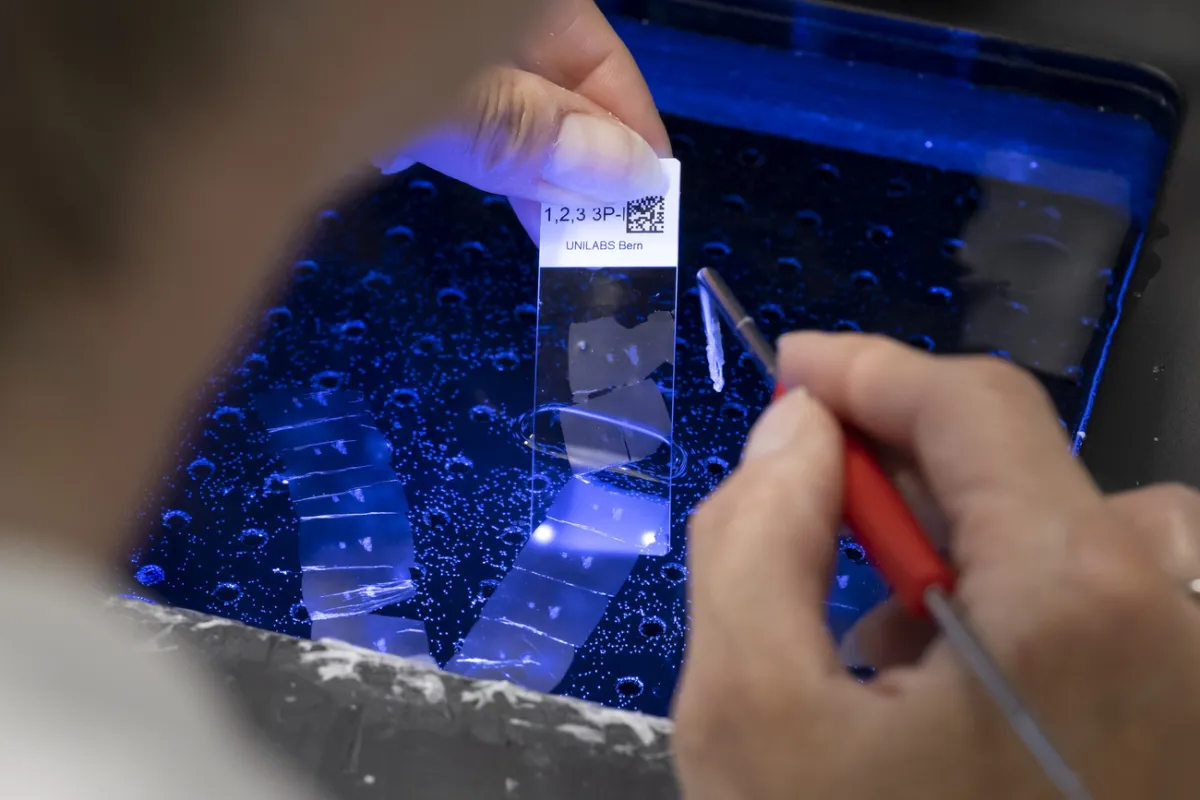
Major New Initiative Aims To Bring AI To Cancer Treatment In Switzerland
-
Deutsch
de
So sollen KI-Tools die Krebsbehandlung in der Schweiz verbessern
Read more: So sollen KI-Tools die Krebsbehandlung in der Schweiz verbe
Français
fr
Une initiative d'ampleur vise à intégrer l'IA dans le traitement contre le cancer en Suisse
Read more: Une initiative d'ampleur vise à intégrer l'IA dans le traitement contre le cancer en S
Italiano
it
La Svizzera lancia un progetto nazionale per la cura del cancro con l'intelligenza artificiale
Read more: La Svizzera lancia un progetto nazionale per la cura del cancro con l'intelligenza artifi
The project, called the National AI Initiative for Precision Oncology (NAIPO), will bring AI into cancer care by developing tools to help doctors diagnose and treat the disease. To do this, it will build a database of patient records and diagnostic notes, then use large language models (LLMs) to analyse the information. It will also bring AI to radiology, pathology, and other clinical fields.
The five-year project is funded with CHF8.25 million ($10.4 million) by Innosuisse, the country's technology agency, and another CHF10 million from partner institutions. That makes it among the best-funded cancer research projects currently underway in Switzerland.
“At the end of the programme we should be able to help precision oncology patients benefit from all these AI developments so that they get treated in a better way,” says Olivier Michielin, head of the department of oncology at Geneva University Hospitals (HUG) and co-coordinator of the project.
“The final goal, as always in oncology, is to increase the survival rate, and improve all the metrics of treatment benefits,” he adds.
How will the initiative work?The first step is to create a shared central repository of data, including medical records and treatment notes from consenting patients. From there, LLMs will be developed to extract, collect and share information, coordinating treatment. Another strand of NAIPO focuses on building AI tools for clinical practice, particularly in radiology and pathology, fields that already deal with complex datasets from genetic data or microscope images of tissues. In parallel, researchers will explore using AI to analyse tumour samples with a detail and depth that current tools cannot match.
The information that is gathered will go back to molecular tumour boards. These are medical bodies that bring together specialists to discuss cases and share opinions on diagnosis and therapies. There are local boards within individual hospitals, and a national one, where experts review the most complex among the more than 50,000 yearly cancer cases in Switzerland.
Finally, the project will engage patients through a dedicated mobile application to ensure they remain actively informed and engaged throughout their care.
NAIPO builds on the Swiss Precision Oncology initiative of the Swiss Personalized Health Network, a federal programme launched in 2018 and expanded in 2022 to complement a national repository of data for clinical research with state-of-the-art data collection to guide molecular tumour boards. The Swiss Precision Oncology project included many of the partners now involved in NAIPO.
AI tumour board in ZurichNAIPO is not the first attempt to introduce AI to clinics. In May, University Hospital Zurich announced it was establishing an AI Tumour Board that will begin work in November.
The push to use AI in oncology is driven by what's called“next-generation sequencing,” a technology developed over the last few decades that analyses the DNA in cancer cells. The process produced detailed information and created a need for complicated machine analysis. All Swiss university hospitals introduced next-generation sequencing about 10 years ago, according to Andreas Wicki, vice-president of the department of oncology and hematology at University Hospital Zurich.“This was the first time we got more data than we had ever [gotten] before,” he says.
Read more about the opportunities and risks of AI in healthcare treatment:
More More AI-powered neurotechnologies raise hopes and fears for health and privacy in GenevaThis content was published on Nov 26, 2024 Neurotechnologies integrating artificial intelligence (AI) can treat diseases such as Parkinson's but they can also alter the brain and read the mind.
Read more: AI-powered neurotechnologies raise hopes and fears for health and privacy in G
Legal Disclaimer:
MENAFN provides the
information “as is” without warranty of any kind. We do not accept
any responsibility or liability for the accuracy, content, images,
videos, licenses, completeness, legality, or reliability of the information
contained in this article. If you have any complaints or copyright
issues related to this article, kindly contact the provider above.

















Comments
No comment